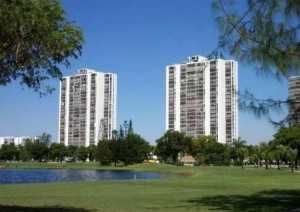Property investment hotspots for NRIs in India
 India has now become one of the hotspots for NRI property investors. The properties in India have become a haven for the NRIs due to various reasons. There are various Indian developers who are all geared up to offer the NRI investors an array of choices in property buying. The properties range from Rs.1.5 lakh to Rs. 15 crore. All the main aspects of property buying for NRIs were told in an exhibit which was held in India.
India has now become one of the hotspots for NRI property investors. The properties in India have become a haven for the NRIs due to various reasons. There are various Indian developers who are all geared up to offer the NRI investors an array of choices in property buying. The properties range from Rs.1.5 lakh to Rs. 15 crore. All the main aspects of property buying for NRIs were told in an exhibit which was held in India.
The exhibit which was held a few days ago showcased the 20th India Property exhibition along with more than 100 projects spread across major cities like Delhi, NCR, Mumbai, Goa, Bangalore, Hyderabad and others. The projects which were offered to the NRIs were ranging from apartments to independent houses, bungalows, luxury villas, farmhouses, commercial properties, beach resorts and plots. Due to the high rise in Indian economy the realty market is on a great curve which has in turn increased the participation of many global players.
 Last year, it seemed that the property investments were quite relaxing for the NRIs and they also gained 18% of it. Property investment has always been one of the traditional favourites among them. Perhaps, an NRI has to focus on few important aspects before investing in any property. There are various things which he should question himself about, like, if he would be benefited by an investment? If this is the right time for an investment? And the type of property an NRI should go in for. Let us focus on few important aspects of property investments for NRIs;
Last year, it seemed that the property investments were quite relaxing for the NRIs and they also gained 18% of it. Property investment has always been one of the traditional favourites among them. Perhaps, an NRI has to focus on few important aspects before investing in any property. There are various things which he should question himself about, like, if he would be benefited by an investment? If this is the right time for an investment? And the type of property an NRI should go in for. Let us focus on few important aspects of property investments for NRIs;
 Investment in residential property by the NRIs in India:
Investment in residential property by the NRIs in India:
Most of the investors feel that this is the right time for the NRIs to invest in a residential property in India. Perhaps, anytime is the right time to invest in properties in India. Few of the main components which an NRI property investor has to keep in mind is the location, the developer and the budget.
Hotspot cities for residential investments for NRIs in India:
NRIs can invest in the suburban localities of all the metro based cities. This would fetch them a greater amount of returns down the year.
- Mumbai: Nalasopara, Dahisar, Panvel, Pen and Kalamboli, Bandra East, Goregaon, Panvel, Lower parel, Mahalaxmi and Parel in Central Mumbai
- Chennai: GST road, Porur and OMR
- Bangalore: North Bangalore,Hebbal, Sada Shivnagar, Sarjapur Road and Whitefield.
- Gurgaon: Dwarka Expressway.
- Ahmedabad: Gandhinagar
 The type of residential property an NRI should invest in and the gateway to potential yields:
The type of residential property an NRI should invest in and the gateway to potential yields:
An NRI should invest in under construction properties
Choose a reputed developer who doesn’t delay the projects due to various reasons.
These investments will result in yields of about 3 %.
Renting your property will get you greater returns.
Investment in commercial property by the NRIs in India:
Similarly, the investment by the NRIs in the commercial property at this time would term beneficial to them. According to various realtors, this is the right time for the NRIs to invest in any commercial property based on various reasons. Apparently, the country’s growth is intact with just a minute instability. This year will offer the NRIs the straight advantage of exchange rate wherein the rate will stabilize with the government intervention. However, the property valuation the commercial space has reduced and is undervalued by about 15-30%. Most of the developers have leveraged the paying of interest rate by about 13%-21% for the land.
 Due to a prediction of the vacancy rates of the office space being high the developers will be forced to either lease cheap and/or sell cheap. This is also the best time for sustainable yields and capital appreciation. In order to get a good return the investors should stay invested in a property for the next 5 years.
Due to a prediction of the vacancy rates of the office space being high the developers will be forced to either lease cheap and/or sell cheap. This is also the best time for sustainable yields and capital appreciation. In order to get a good return the investors should stay invested in a property for the next 5 years.
Hotspot cities for NRI commercial investment:
Currently the NRIs can invest in the following cities; Mumbai, Pune in the west, Delhi and NCR in the North, Bangalore, Chennai, Hyderabad and other southern states.
Henceforth few of the important aspects which an NRI should focus on are;
- The location
- The title
- The Development aspect – Mid and low segment residential or Office space (IT or Corporate office).
- Financial closure
- Marketing ability of the developer
- Lower rent
- Covenant of the lease for tenanted property and tenant profile
- Date of possession.









